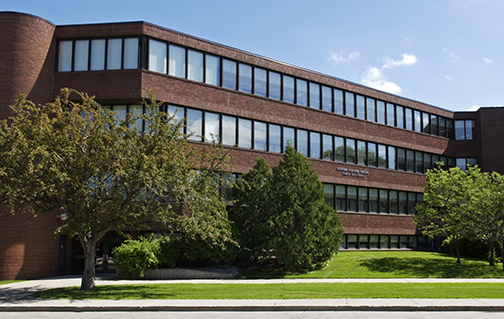Chemistry involves the study of the composition, structure, properties and interactions of matter. Chemistry is often considered a central or enabling science, because it is foundational to understanding other scientific disciplines. Teaching chemistry in middle and secondary schools requires deep knowledge of (a) science content, (b) current theories of adolescent development, and (c) current best practices in secondary instruction. Accordingly, the chemistry education major combines coursework in chemistry and related sciences with professional education courses on teaching and learning.
The Program
Candidates in chemistry education are prepared to teach students in grades 5-12 with skill and confidence. The program is designed to develop science content knowledge as well as proficiency in a range of science-related skills and laboratory practices. Our professional education courses prepare teacher candidates to incorporate active learning strategies, create effective methods for assessment, and adjust instruction to accommodate diverse learners. Teacher candidates also apply their knowledge and build their teaching skills during multiple clinical experiences in local schools.
Professional Education Courses
Teacher candidates may enroll in the 300-level professional education courses before being formally admitted to the School of Education (SOE). Prior to enrolling in the 400-level courses, teacher candidates must complete the application for admission to the SOE; attain a minimum of a 2.75 grade point average overall in their course work and education courses; pass the Praxis Core Academic Skills test or meet minimum scores on the ACT+. Requirements for admission can be found on the School of Education website.
Student Teaching
Student teaching (clinical practice) is the culmination of the teaching program. During the clinical practice, teacher candidates apply the knowledge and skills acquired in their college courses to real-world classrooms under the supervision of experienced classroom teachers in middle or secondary schools. Faculty members from NDSU conduct regular on-site visits to support, encourage, and evaluate teacher candidates so that they gain the confidence and ability to join the teaching profession after graduation.
Student Advisement
Chemistry education teacher candidates are assigned to academic advisors who work closely with them to plan their programs of study and to advise and assist them as they progress to degree completion. Students are encouraged to meet with their advisor at least once every semester, as well as whenever needed.
licensure
Upon completing this program, teacher candidates are eligible for teacher licensure in most states. Teacher candidates who take the Praxis Subject Assessment exam for Chemistry will be licensed to teach Chemistry and related high school courses, as well as middle school sciences. Teacher candidates who choose to take the Praxis Subject Assessment exam for General Science will be licensed to teach all areas of middle school and high school science. Our program is accredited by the Council for the Accreditation of Educator Preparation (CAEP) and approved by the North Dakota Education and Standards Practices Board (ESPB).
Career OPPORTUNITIES
Science teachers are in high demand across the country, so our graduates usually obtain full-time employment in school districts shortly after graduation.
Sample Program Guide
IMPORTANT DISCLAIMER: This guide is not an official curriculum. This guide is a sample four-year degree plan of how students might plan this major with other degree requirements to complete their education in four years.Student plans will vary from this sample due to a variety of factors, such as, but not limited to, start year, education goals, transfer credit, and course availability. To ensure proper degree completion, enrolled students should utilize Degree Map and Schedule Planner in Campus Connection and consult regularly with academic advisors to ensure graduation requirements are being met.

